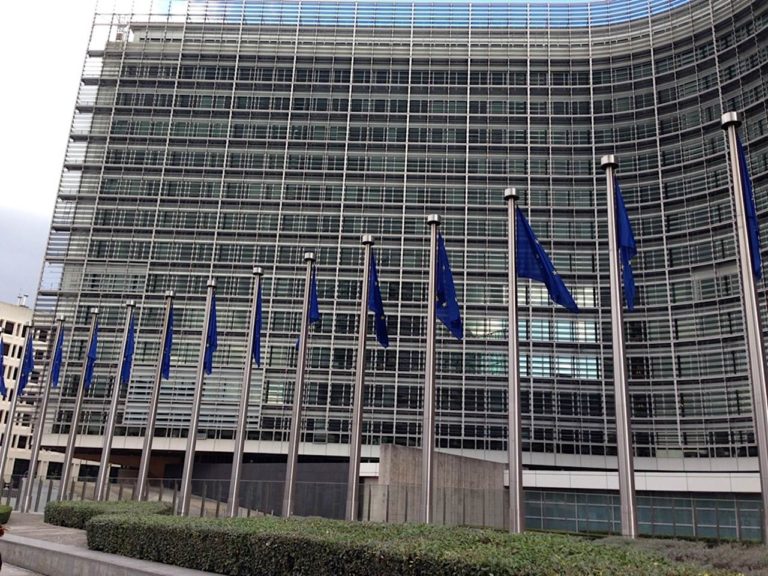Highlights from the Past Week
CW 49 / Monday, 5 to Thursday, 8 December: Political Group and Committee Meetings Week (Brussels);
CSAM I – APPLE’S WITHDRAWAL FROM “CLIENT SIDE SCANNING”: Apple will not after all implement its plan for local detection of abuse photos on iPhones. The company has decided “to not move forward” with the announced detection tool for footage showing child sexual abuse, Apple said in a statement. “Children can be protected without companies having to comb through personal data.” (see Wired or Heise – DE)
CSAM II – PROGRESS REPORT IN THE COUNCIL: Last week saw the presentation of the Czech Presidency’s Progress Report. No single Member State commented on this in the public session. Commissioner Johansson took the floor to stress once again that the ePrivacy derogation will expire in the summer of 2024 and that law enforcement could then lose 80% of its information sources. With this being the case, the presented proposal would not open new doors, but only prevent open doors from being shut. (video)
EIDAS – COUNCIL ADOPTS POSITION: Telecom Ministers last week agreed on the general approach on the eID proposal, which obliges Member States to issue a digital identity recognised in the EU-27. The “wallet” is to be based on common technical standards and will follow a mandatory conformity assessment. In the Council’s version, a hybrid solution is proposed for the level of security to be met, allowing Member States with weaker authentication systems than those proposed by the Commission to maintain them with additional measures.
The impact of the text on the e-identification solutions already deployed by individual Member States remains rather unclear at this stage. Recital 10b, added by the Council, should allow the use of external security components, such as the electronic national identity card, as a transitional solution. On the European Parliament side, the opinion of the lead industry committee is expected in February 2023. (see Contexte, paywall, FR, Euractiv)
ARTIFICIAL INTELLIGENCE I – COUNCIL ADOPTS A GENERAL APPROACH: The Council adopted the general approach on the Commission’s proposal for an Artificial Intelligence Act at the Telecom Council meeting. (see Euractiv)
Aside from Latvia, all Member States took the floor to congratulate the Czech Presidency and to also point out their individual concerns.
Germany, for example, still wants exemptions for law enforcement authorities regarding restrictions on remote biometric identification. Important issues in the trilogue concern the scope of the regulation (AI systems involving, for example, machine learning, knowledge and logic systems, autonomy) and consistency with other regulatory areas (such as medical devices and the transport, finance and insurance sectors).
However, the report from the European Parliament, which is not expected until March next year, is still missing for the start of trilogue negotiations.
Meanwhile, the Commission has presented its draft standardisation request for the AI Act. In doing so, it has downsized the European Telecommunications Standards Institute (ETSI), one of the three European standardisation bodies, to a mere consultancy role. (see Euractiv)
ARTIFICIAL INTELLIGENCE II – EP RAPPORTEURS DISCUSS “AI SYSTEMS FOR GENERAL USE”: The meeting on 6 December confirmed progress at the technical level, in particular on the scope of the regulation (Batch 6) and the final provisions (Batch 7). When it comes to governance (Batch 8) and enforcement (Batch 9), the rapporteurs are close to reaching an agreement. However, this still depends on the final agreement and some adjustments regarding the future “AI Office”. Several political groups, especially the EPP, are opposed to this office being a tacit “EU agency”, bringing with it material, human and financial resources. There is also the question of its role in joint investigations. Two technical meetings are scheduled to take place in Parliament on 9 and 13 December respectively, before another political meeting on 14 December. (see Contexte, paywall, FR)
E-EVIDENCE – PROGRESS REPORT IN THE COUNCIL: According to the progress report (PDF) presented last week, the Czech Presidency considers that the agreement reached with the Parliament on e-Evidence is “acceptable” to the EU Council, even if some aspects are not ideal from the Council’s perspective. For example, orders to produce electronic evidence are to be addressed to the controller of the service, while the Council believes that this model “raised several technical, but still very important issues”. Ahead of the trilogue, the Council also called for discretion in the rules that must be followed by public authorities in the country where the service is located in order to refuse an order from another country. Final technical negotiations are expected to lead to the adoption of the text early next year. (see Contexte, paywall, FR)
DATA ACT – CZECH COUNCIL PRESIDENCY PRESENTS THIRD COMPROMISE: During the presentation of the progress report (PDF) at the Telecom Council on 6 December, the Deputy Minister President for Digitalisation Ivan Bartoš announced a new compromise. France welcomed the Czech Presidency’s to-date “initial clarifications” and called for work in future discussions on the ambitious standards for cloud market portability and interoperability. Germany, the Netherlands and Belgium also stressed the importance of working on the interoperability of services in addition to the aspect of switching providers. Turning to the rest of the text, the Netherlands and Ireland questioned the compensation provisions for access to Internet of Things data and called for a related “urgent” impact assessment. Finally, in response to the statements of Commissioner Breton and of Finland, which called for a quick adoption of the text, Denmark and Greece stressed the importance of prioritising the quality of the text over speed. (see Contexte, paywall, FR)
The announced compromise text on the data law was subsequently circulated on Thursday. It introduces significant changes to the part intended to facilitate the switching from one cloud provider to the other. (see Euractiv)
CYBER RESILIENCE – COUNCIL WITH NEW COMPROMISE EXCLUDING SAAS: The Council’s new compromise text on the Cyber Resilience Act seeks to clarify the scope of the proposal. According to the text, “Software as a Service” (SaaS) is clearly being dropped, contrary to the calls on behalf of Member States such as the Netherlands and Germany.
At the Telecom Council meeting on Tuesday, Commissioner T. Breton stated that the inclusion of services such as Spotify and Netflix would violate the legal basis of the regulation. However, the scope of application still needs to be fully clarified, in particular with regard to how web services and mobile applications interact with the new rules. (see Euractiv)
E-PRIVACY – COUNCIL INTENDS TO MAKE NEGOTIATIONS CONDITIONAL ON DATA RETENTION PROGRESS: Aside from the joint proposal on one of the tricky points of the regulation with the Parliament’s rapporteur Birgit Sippel (S&D), overall not much progress was made. However, in his report to the Telecom Council, Czech Minister Ivan Bartos spoke of technical progress on the dossier, including the territorial scope of the regulation, the appointment of a representative and telemarketing. He added that a compromise seemed possible on the processing of metadata for the vital interest of the individual and for scientific and statistical purposes. These technical compromises would have to be confirmed at the political level as part of a general agreement on Chapter II. Nevertheless, the Council wants to increase pressure on two delicate issues: data retention and the processing of information by law enforcement authorities. The Council wants to make further progress conditional on the outcome of negotiations on these points on data retention, in particular regarding Article 6.1d. (video; see Contexte, paywall, FR)
COPYRIGHT – CONSULTATION ON LIVE PIRACY: The EU Commission has published the (still empty) website for the public consultation on its recommendation to combat piracy of live content on the Internet. The proposal is expected to be adopted in the second quarter of next year. The aim is to propose a set of instruments for combatting piracy and to encourage Member States to implement their own measures.
INFRASTRUCTURE LEVY I – INDIVIDUAL MEMBER STATES CALL FOR MORE TRANSPARENCY FROM THE COMMISSION: In their letter of 2 December, Germany, Austria, Estonia, Finland, Ireland and the Netherlands urge the Commission to provide more information on the “timeline, analyses and steps” of its plan to have platforms commit to contributing to the funding of the Internet, which Telekom refers to as a “fair share”. A group of states, including Germany, expressed scepticism on this plan, which is supported by France. Their main request is for the quick publication of the directive’s amendment on the cost of deployment of telecommunications networks.
INFRASTRUCTURE LEVY II – FOCUS ON FRANCE: France’s tech lobby Numeum has published a paper criticising the Commission’s future legislation on the infrastructure levy. “The idea of a financial contribution from some providers of digital services is based on false assumptions, but could have real side effects at the expense of users,” says the trade organisation, which not only represents hundreds of French companies, but also the likes of Google and Apple.
DIGITAL MARKETS ACT – IMPLEMENTING REGULATION IN CONSULTATION: The implementing regulation on the Digital Markets Act (DMA) was released for consultation on Friday, set out with a deadline of 9 January.
It will regulate procedures on scope of application, notifications and submissions, opening of proceedings, the right to be heard, access to files, time limits, transmission, and the receipt of documents. Entry into force is scheduled for 2 May.
The Commission asks for an extensive list of all core platform services together with plausible alternative delineations and a detailed explanation of the boundaries between different core platform services.
MINIMUM TAX – HUNGARY BLOCKS IMPLEMENTATION: Last week, the draft directive for a minimum tax on multinational companies was removed at the last minute from the agenda of the formal meeting of EU finance ministers. It was only raised behind closed doors during the breakfast meeting.
The text, which is supposed to implement an agreement signed in the OECD, is being exploited by Hungary as a bargaining chip to push for the release of 13 billion Euro in freezing EU funds. The Czech EU Presidency hopes to find a solution by next week. To achieve this, it has asked the Commission to make a new assessment of Hungary’s proposed anti-corruption reforms within three days with a view to receive the potentially freezing funds. (see Contexte, paywall, FR, Politico)
BIK+ – NEW TENDER FOR A BETTER INTERNET FOR KIDS: The EU Commission has published a “Call for Tenders” for the Better Internet for Kids platform. The deadline is 13 January. This procurement consists of two parts: the Better Internet for Kids (BIK) portal and awareness-raising activities on child consumer protection on digital markets.
AGE CODE OF CONDUCT – NEW EU COMMISSION EXPERT GROUP: A new group in the European Commission will help to create an age-appropriate design code of conduct, which should be ready by mid-2024. The group will support DG Connect in developing the code of conduct to ensure that children are safer on the Internet. Organisations and individuals can apply until 11 January. (see EU Commission)
DATA PROTECTION – ECJ REINFORCES RIGHT TO BE FORGOTTEN: With its decision last week, the European Court of Justice (ECJ) reinforced the so-called “right to be forgotten” enshrined in the GDPR. According to this, Internet users are allowed to demand that search engine operators remove certain results if they can prove that the content concerned is not correct.
“The operator of a search engine must dereference information found in the referenced content where the person requesting dereferencing proves that such information is manifestly inaccurate”, the court said in a statement. Such proof need not however “result from a judicial decision made against the publisher of the website”.
While the ECJ also stressed that the right to protection of personal data is not unlimited, it added that it must be considered in relation to its function in society and be balanced against other fundamental rights. For example, the GDPR expressly provides that “the right to erasure is excluded where processing is necessary for the exercise of the right, in particular, of information”. However, this right does not apply if referenced content is at least to a significant extent factually incorrect. If someone provided “relevant and sufficient evidence” of this, the search engine operator would have to comply with the dereferencing request. (see ECJ, C-460/20, ECJ press release – PDF)
COMMON CHARGERS – DIRECTIVE PUBLISHED IN THE OFFICIAL JOURNAL: From 28 December 2024, all smartphones, tablets and the likes sold within the European Union (EU) must be equipped with a USB Type-C port. This is provided for in the EU Directive adopted in October and published last week in the Official Journal of the EU. For laptops, the obligation will only apply from 28 April 2026. The new regulations will now officially come into force on 27 December. From then onwards, the individual Member States will have two years to transpose these into national law.
UK – ONLINE SAFETY BILL: The Online Safety Bill, which was the UK’s response to the Digital Services Act, was reintroduced to parliament on Monday, having been shelved in the summer when Boris Johnson left the office. However, the latest version of the Act has been substantially amended following a number of critiques concerning the provisions on “legal but harmful” material, which were considered to lead to excessive removal of content by platforms, posing a threat to freedom of expression. Last week, the government announced that these elements of the Act would be scrapped, meaning that companies would no longer be required to have policies on this material for adult users. However, they will still apply to children.
Relevant Publications, including from the EP Think Tank:
- E-commerce and the EU Green Deal – Analysis of the environmental footprint of online sales in the context of the circular economy (Study)
- REPowerEU: Amending Energy Legislation (At a Glance)
- Policy Departments’ Monthly Highlights – December 2022 (At a Glance)
- Opinion on the proposal for a regulation of the European Parliament and of the Council on the transparency and targeting of political advertising (JURI, A. Niebler)
Outlook for the Current Week
You can find a list of the upcoming dates of the European Parliament here, as well as an overview of the agenda for the coming plenary session week (with two of the items including the REPowerEU and a debate on “Protection of strategic infrastructure from China’s influence”).
The meeting calendar for 2023 is available here (PDF).
An overview of the most important dates of the Council week can be found here and the meeting calendar can be accessed here.
You can access the official calendar of the Czech Presidency here (PDF). We will link to the Swedish calendar as soon as it is available.
Included among these dates are:
Summits and Ministerial Meetings:
- Agriculture and Fisheries Council, Sunday, 11 and Monday, 12 December – Agenda, A Items;
- Foreign Affairs Council, Monday, 12 December – Agenda, A Items, A Items Addition;
- General Affairs Council (incl. Political Advertising), Tuesday, 13 December – Agenda, A Items;
- Extraordinary Transport, Telecommunications and Energy Council (Energy), Tuesday, 13 December – Agenda;
- European Council, Thursday, 15 December – Agenda;
Preparatory Bodies:
- Working Party on Tax Questions (Indirect Taxation), Monday, 12 December;
- Working Party on Competitiveness and Growth (Internal Market) (incl. Ecodesign), Monday, 12 December;
- Working Party on Consumer Protection and Information, Monday, 12 December;
- Working Party on Cooperation in Criminal Matters (COPEN), Monday, 12 December and Tuesday, 13 December;
- Working Party on Telecommunications and Information Society (incl. AI, Data Act), Tuesday, 13 December;
- COREPER I (RED, EED), Tuesday, 13 December;
- COREPER II, Monday, 12 December;
Information on the weekly Commission meeting can be found on the Commission’s website in the preview (PDF) or (at short notice) in the current agenda. The following topic is on the agenda for the coming week:
- Securitypackage
- Revision of the anti-trafficking Directive
- Obligation of carriers to communicate advance passenger information (API)
You can find the judicial calendar of the ECJ here.
European Parliament Committees
CW 50 / Monday, 12 to Thursday, 15 December: Plenary Sessions Week (Strasbourg);
LIBE Committee (Civil Liberties)
Current Meetings
- Monday, 12 December 2022, 19.30-20.30 (Strasbourg)
Excerpt from the Draft Agenda
The current agenda does not contain any topics of direct relevance to the Internet industry.
Further Meetings (Calendar)
- Thursday, 12 January 2023, 9.00-12.30 (Brussels)
JURI Committee (Legal Affairs)
Current Meetings
- Monday, 12. December 2022, 20.30-21.30 (Strasbourg)
Excerpt from the Draft Agenda
The current agenda does not contain any topics of direct relevance to the Internet industry.
Further Meetings (Calendar)
- Monday, 9 January 2023, 15.00-18.30 (Brussels)
- 23/24 January 2023 (Brussels)
Dossiers Timetable (5 October 2022)
ITRE Committee (Industry)
Current Meetings
- None
Further Meetings (Calendar)
- Monday, 23 January 2022, 15.00-18.30 (Brussels)
- Tuesday, 24 January 2022, 9.00-12.30 and 14.30-18.30 (Brussels)
Dossiers Timetable (6 December 2022)
IMCO Committee (Internal Market)
Current Meetings
- Monday, 12 December 2022, 19.00-21.00 (Strasbourg)
Excerpt from the Draft Agenda
…
12 December 2022, 19.30 – 20.00
*** Electronic vote***
- 30th Anniversary of the Single Market
IMCO/9/09278
| Rapporteur: | ||
| Anna Cavazzini (Verts/ALE) | ||
- Adoption of motion for a resolution
- Consumer protection in online video games: a European Single Market approach
IMCO/9/08347
| Rapporteur: | |||
| Adriana Maldonado López (S&D) | PR – PE719.799v01-00 AM – PE734.245v01-00 |
||
| Responsible: | |||
| IMCO | |||
- Adoption of draft report
- Establishing a framework of measures for strengthening Europe’s semiconductor ecosystem (Chips Act)
IMCO/9/08360
***I 2022/0032(COD) COM(2022)0046 – C9-0039/2022
| Rapporteur for the opinion: | |||
| Maria-Manuel Leitão-Marques (S&D) | PA – PE735.490v02-00 AM – PE735.486v01-00 |
||
| Responsible: | |||
| ITRE* | Dan Nica (S&D) | PR – PE731.655v01-00 AM – PE737.266v01-00 AM – PE737.359v01-00 AM – PE737.348v01-00 |
|
- Adoption of draft opinion
*** End of electronic vote ***
…
Further Meetings (Calendar)
- Monday, 23 January 2022, 15.00-18.30 (Brussels)
- Tuesday, 24 January 2022, 9.00-12.30 aund 14.30-18.30 (Brussels)
Dossiers Timetable (November 2022)
CULT Committee (Culture)
Current Meetings
- None
Further Meetings (Calendar)
- Monday, 23 January 2022, 15.00-18.30 (Brussels)
- Tuesday, 24 January 2022, 9.00-12.30 and 14.30-18.30 (Brussels)
PEGA Committee (Pegasus Committee of Inquiry)
Current Meetings
- Thursday, 15 December 2022, 9.00-12.00 (Strasbourg)
Excerpt from the Draft Agenda
…
- Hearing on “Spyware used in third countries and implications for EU foreign relations” in association with Committee on Foreign Affairs
…
Further Meetings
- Monday, 9 January 2023, 15.00-18.30 (Brussels)
INGE2 Committee (Special Committee on Foreign Interference)
Current Meetings
- None
Further Meetings (Calendar)
- Open
Further Parliamentary Calendar Dates
- CW 51-1 / Monday, 19 December to Friday, 6 January: Green Week / no meetings;
- CW 2 / Monday, 9 to Thursday, 12 January: Political Group and Committee Meetings Week (Brussels);
- CW 3 / Monday, 16 to Thursday, 19 January: Plenary Sessions Week (Strasbourg);




